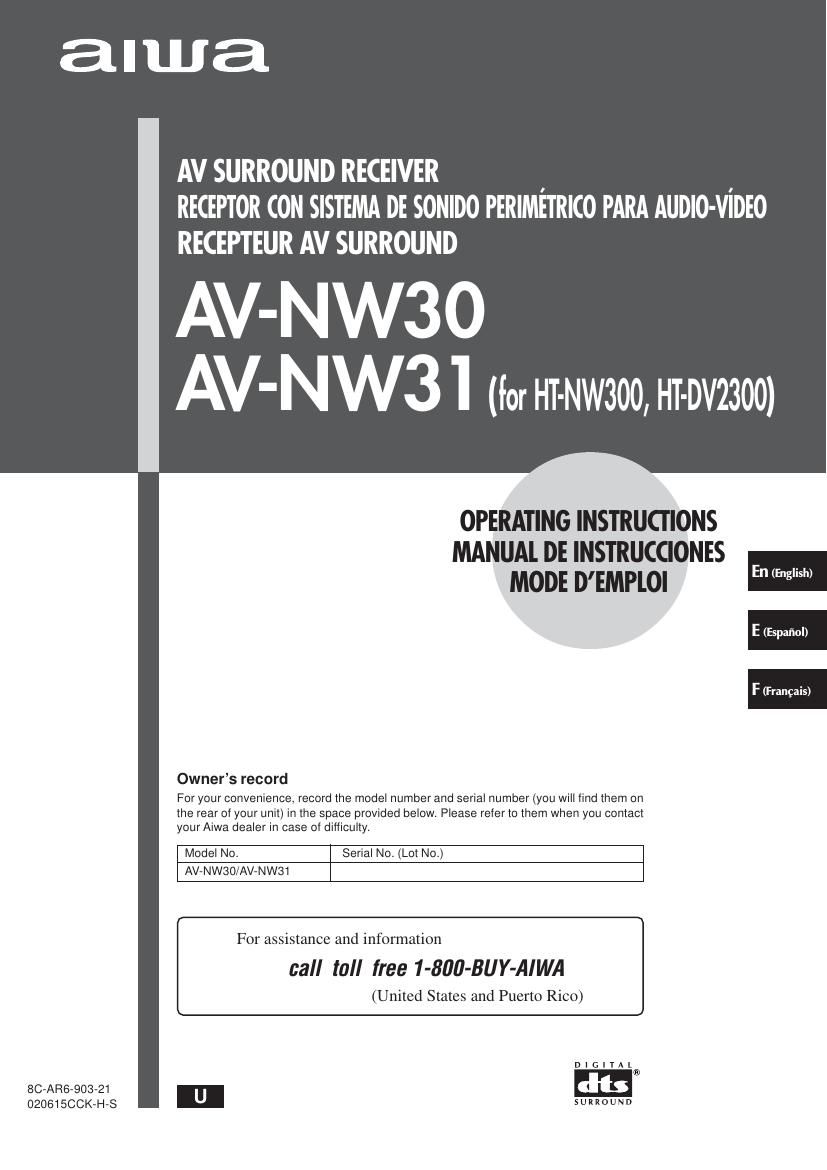Aiwa AV NW30 Owners Manual
This is the 20 pages manual for Aiwa AV NW30 Owners Manual.
Read or download the pdf for free. If you want to contribute, please upload pdfs to audioservicemanuals.wetransfer.com.
Page: 1 / 20
